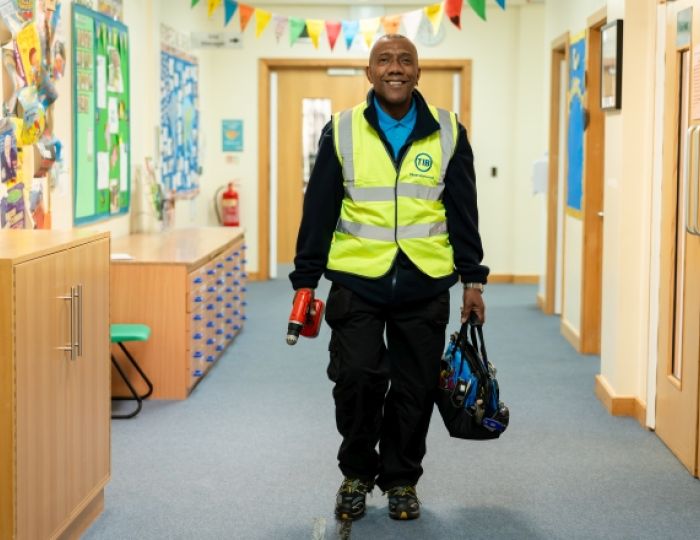Gavin slowly lifts his head from his hands. His head is pounding, the veins in his neck pulsating as he stares listlessly at his ‘Keep Calm I’m a Headteacher’ mug. He’s far from calm. It feels like his brain is drowning in a sea of treacle. He just can’t think straight. He can’t see how to solve the staffing gaps that lie in wait after the holidays. Time is running out, and so is his power to think.
Being a headteacher can be lonely. It can sometimes feel as though everyone is turning to you, expecting you to solve all their problems, but do heads have to feel that way? What headteachers can do is build a network of support around themselves – one that’s there to help when it seems like a solution can’t be found.
Change your thinking
As headteachers, we need to change our thinking about what it actually means to be a leader. Being a leader isn’t about you always having the answer to every problem; it’s about you finding the answer. It doesn’t even matter where the solution comes from, because it’s ultimately your determination to find the solution that makes you a leader. So where are those kind of solutions likely to be found?
During my own time as a headteacher I found that other heads are more than willing to support one another. The bedrock for this, however, is trust, which takes time to build. I’d therefore recommend that you spend time with your local cluster of headteachers and identify any who seem to have the same ethos as you. Doing so can be a worthwhile investment – my own local cluster of headteachers was essentially a free ‘board you couldn’t otherwise afford’ panel of experts, who were willing to share their ideas, experiences and creative solutions, and were happy to provide supportive phone calls.
Alternatively, if you prefer working in smaller groups, why not create your own ‘triad’ with two other headteachers who share a similar ethos and range of experience? My own triad would meet regularly, enabling us to share our ideas and current thinking. This helped us build a shared sense of trust, and we soon came to see each other as supportive friends from whom we could also expect honest criticism. Each of us knew there were two people to whom we could turn when we had a difficult problem, and that at least one of us would always be available.
Don’t walk alone
That notion of solutions founded on trust can also be found within your own school. I can clearly remember trying to decide when to tell the staff that one of our highly valued and loved colleagues had died. My intention had been to tell them later in the afternoon, so as not to have their whole day affected by the initial shock of grief, but I wisely consulted my SLT first. Their advice was to tell them before school.
That advice was correct. The staff valued being told straight away, and I did so knowing that I had my SLT standing with me as I made the announcement. To borrow the famous lyric, when you make a decision like that with your team ‘You’ll never walk alone’.
If it’s a particular element of pedagogy or communication you’re wrestling with, then forming staff working groups will help. To address our boys’ writing outcomes, for example, we formed a writing working group which came up with some creative approaches that brought about significant shifts in writing attainment over that year. When we had an issue with our internal communication systems we formed a working group that included members of staff from every job type, so that their thoughts and ideas could be fed back to each section of the school. Our school-wide communication was turned around within a term.
Outside school
As headteachers, we’re not solely responsible for our schools. Around us are boards of governors, LAs, MATs and a high stakes accountability system which can lead us to believe that every action we take is being scrutinised for weakness by the forces that govern us – with the result that we fear to share what we’re doing. Yet we must break free from this way of thinking. After all, their ‘core business’ is the same as ours – wanting the best for children. There’s much that we can and should share with them.
On occasion, however, heads may feel the need to call upon some independent thinking, and this is where a coach can help. My coach, Jane, would help me view some of the ideas I’d generated from different perspectives and examine certain situations through another person’s eyes. Coaching is a very personal matter, so it’s worth having a few telephone conversations with them first to check you’re a good match and outline the coaching approach that suits you (‘warm and supportive’, ‘direct and challenging’, etc)
A coach won’t necessarily need to have performed the same job as you; the key thing is that they have empathy with your world. That said, they ought to possess some professional qualifications (be they university-based or from a body such as the Institute of Leadership and Management). Online resources such as The Coaching Directory (coach-search. co.uk) or consultancies such as Linden Learning (lindenlearning.org) can be useful when searching for a suitable coach. Free coaching for aspiring female leaders is available from the Teaching Schools Council’s ‘Women Leading in Education’ project.
Look within
If you struggle to find any of the above, then you could try coaching yourself using the GROW approach:
Goal – What do you want to achieve?
Reality – What are the positives and challenges in your current situation?
Options – What things could you try? Even crazy ideas may spur better thinking.
Which – Which of the above will deliver the most success and least negative consequences?
As the sessions with my coach often showed, the answers we’re looking for can be found within ourselves. We just need times when our brains aren’t flooded with cortisol for it to be coached out of us, and to trust our colleagues to help find the solutions we need.
Gavin lifts his gaze and sees Liz, the part time teacher, grinning at him through the door panel. He beckons her in and she enters, immediately followed by Sally, his teacher qualified cover supervisor. He listens as they explain how they’ve heard of his need to cover a class for six weeks after the holidays, and suggest that they could both temporarily work full time to provide the necessary cover, if that would help. He feels his jaw drop to the same level his head has just been at. If only he’d asked earlier! Lesson learnt…
Help is at hand
Externally
- Consult with local headteacher clusters
- Form a small triad of like-minded headteachers
- Create school working groups that contain creative thinkers
- Talk to your SLT and remember that you’re not alone
Internally
- Be clear as to what your goals are and what you want to achieve
- Recognise and understand your current reality – both the positives and negatives
- Assess what support options are available to you and what might work
- Decide on which of those options will support you best
Coaches
- Meet them away from school
- Check that you’re a good match
- Outline your preferred coaching approach
- Seek out coaches with professional qualifications and/or affiliations
Colin Tapscott is a leadership consultant and former headteacher; visit everydayleader.co.uk or follow @colintapscott










